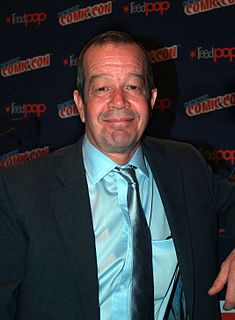A Quote by Mark Cuban
If it had anything to do with the PC or networking industry I was on top of it. I bought manuals. I read every book and magazine. Then I would get involved with industry conferences and put myself out there.
Related Quotes
SDN is a major shift in the networking industry. At Juniper, we think the impact of SDN will be much broader than others have suggested. It will redefine networking and create new winners and losers. We're embracing SDN with clearly defined principles, a four-step roadmap to help customers adopt SDN within their business, and the networking industry's first comprehensive software-centric business model. We're incredibly excited about the value that SDN will deliver to our customers and are committed to leading the industry through this transition.
Before I went to boarding school, I had never read a fashion magazine. I grew up on a council estate in London, and fashion magazines were a luxury item that weren't even on my mind. The closest I got to a fashion magazine was my cousin's 'Top of the Pops' magazines, where we would learn the lyrics to every song and put posters on our walls.
Every time I read anything, whether it be a book, a script, or anything, I automatically imagine myself as the boy in the plot. I don't know why. Seriously, anything. If I'm reading a magazine article or whatever, I picture myself as the kid people are talking about. It's really weird. I don't know why I do that.
Instead of working hard to keep their share of a shrinking pie, or working even harder to make sure the industry stays as is, I think the most essential thing legacy book industry players can do is set up independent ventures with great people and little interference and work really hard to put themselves out of business by starting at the bottom, not by reinforcing the top.
The fact that we're at a point today where anybody, anywhere can put a comic book together and get it in front of the entire planet without spending a dime on printing and distribution - that's the good thing, and I think that's what's going to save [the comics industry]. These young people who have nothing to do with the industry we're in, just going out there and doing their own work and putting it out there, letting people respond to it.
The first comic I can remember ever reading was a 'Fantastic Four' issue that my dad bought out of the drugstore once. The thing that struck me about it was that the ending wasn't an ending. It was essentially a cliffhanger. It was the first time I had ever read anything like that, where you read a book, but the book isn't the book.
I don't want to follow the map of what the music industry does because I've already lived the industry and I still live the industry so I already understand how it works. The industry doesn't really like us around anyway once we get older because we know too much so, that's fine - cut us off - and we'll find another way to get it out there.




































